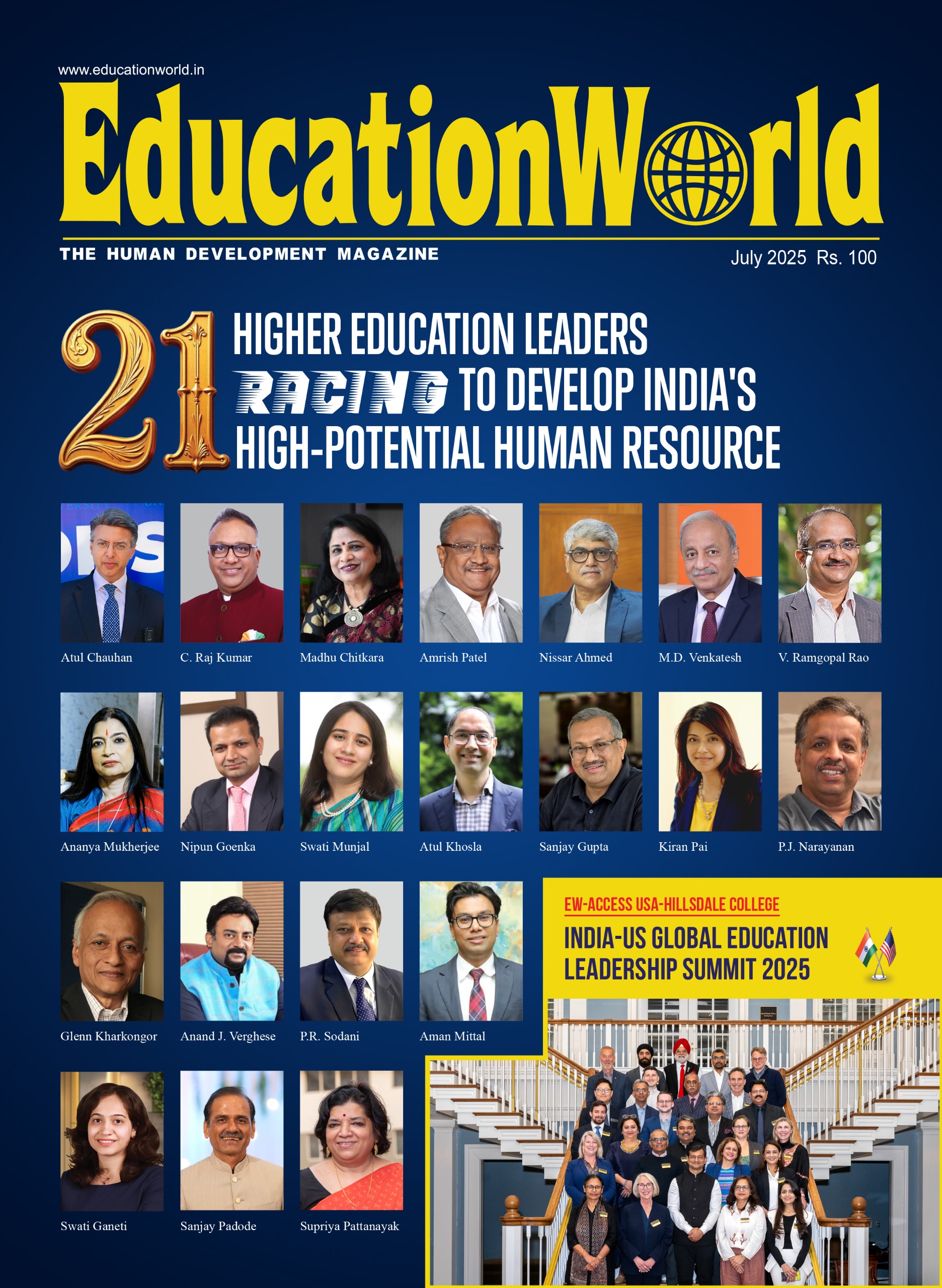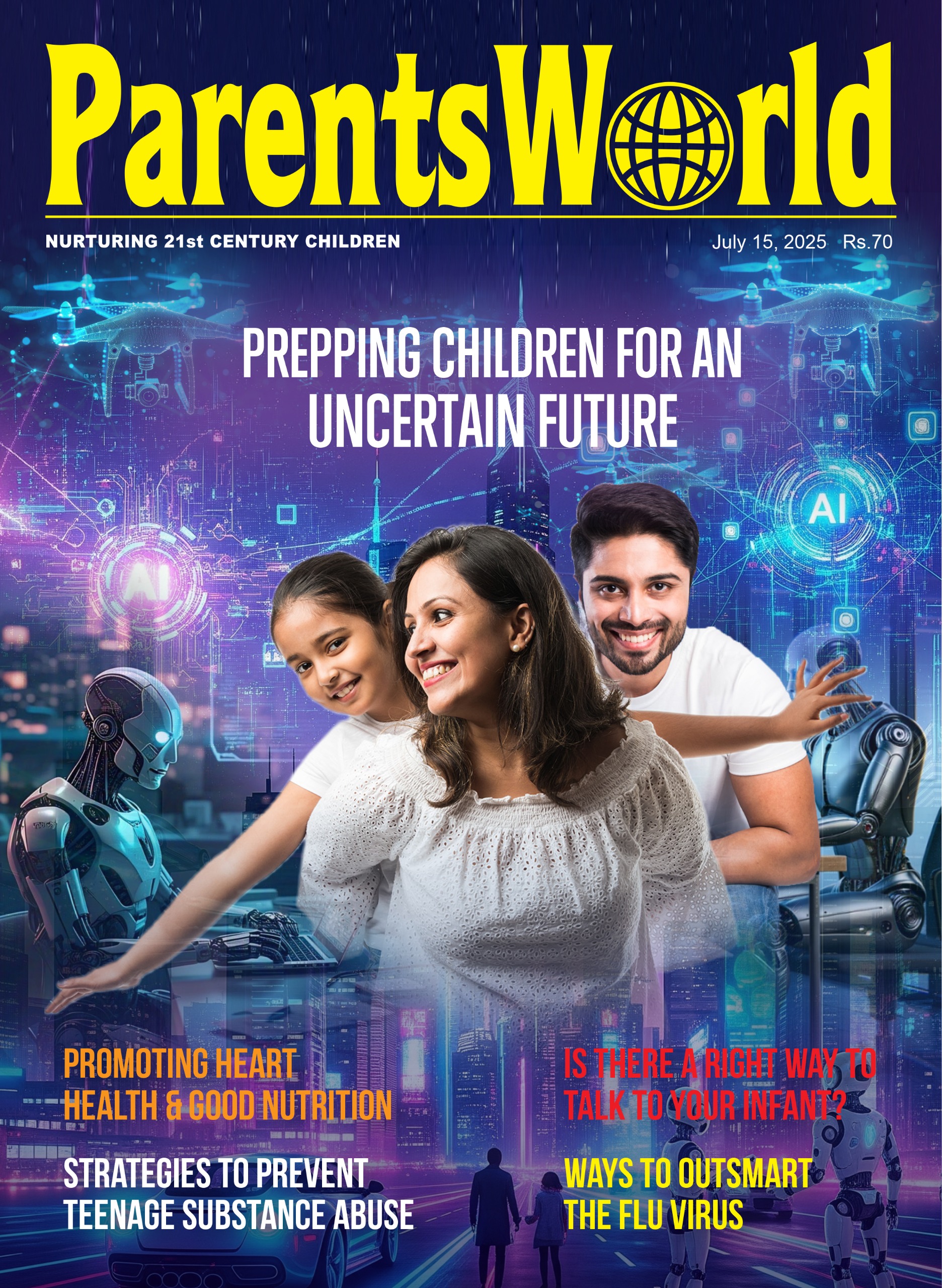 – Shilpa Khadse, Vice Principal, International Curriculum, Shiv Nadar School, Faridabad
– Shilpa Khadse, Vice Principal, International Curriculum, Shiv Nadar School, Faridabad
Education is seen as the torch that dispels the darkness of ignorance, opens doors to the wider world, and gives the power of knowledge that one can utilize for the betterment of oneself and society. This surely puts a great deal of responsibility on the torchbearers. Educators need to prepare their pupils so that they make the right use of their knowledge and understanding.
With the changing world landscape, schools are no longer just disseminators of knowledge. They are places to nurture children, providing opportunities for physical, emotional, and social development alongside intellectual growth. Education is now tasked with equipping our children for an uncertain future, requiring them to be skilled, confident, resilient, and responsible individuals capable of tackling the challenges of evolving industries.
An international curriculum focuses on skill, value-building, and academic preparation. To meet the transformational demands of international education, educators must be more equipped than 20th-century teachers. They must continually learn and upskill to provide the best educational experience for children.
Some major elements that have transformed the educational landscape include technological developments, information overload, and changing industry needs. These factors demand much higher levels of creative and critical thinking, decision-making, collaboration, and adaptability.
Access to technology has eased many tasks on one’s hands but poses the challenge of optimizing its utilization for better education. Systematic training and opportunities to self-learn and experiment are essential for educators to befriend technological tools and enhance the student learning experiences rather than feel challenged in the face of constantly evolving technologies. From simple classroom quizzes, polls, online collaboration, reflection, and mind-mapping tools to complex software for advanced scientific simulations, data processing, digital data collection, and mathematical modeling, a lot can be achieved in the classroom with the right resources and continuous training and experimentation. When utilized optimally, technology can better prepare students for the challenging roles these young individuals would play as future citizens.
Gone are the days when television news or newspaper news was taken as fact. In today’s scenario of information overload through multiple media, a separate discourse is required to help people distinguish between fact, fiction, opinion, belief, bluff, propaganda, etc. Navigating the challenges of misinformation, seeking reality, or recognizing the gaps in available information requires training and a specific skill set.
Educators are essential in training students in Digital and Media literacy and building research and inquiry skills. Education also needs to enable students to apply higher-order thinking skills of critical analysis, evaluation, and synthesis. Schools, therefore, need to train teachers continuously to build these skills and work with their students to build them.
Learning has evolved into a collaborative process involving teachers and students, as well as among students themselves, departing from the traditional top-down information dissemination approach. Teachers must empower students to take charge of their learning. The crucial aspect is to offer sufficient space for exploration without veering off course, ensuring that the desired learning objectives are achieved.
Therefore, a teacher must carefully design the learning experience with the right resources and tools, planning backward from the desired learning outcome. The learning outcomes include the content, real-life context, and the skills and attitudes students need to build through the learning experience. The international education landscape demands that a teacher be the architect of the learning design, a coach, and a mentor to support and motivate the students. An international curriculum teacher is, therefore, a designer and not just an implementer of the curriculum.
Each of these demands a huge attitudinal shift and a change in thought process to guide the pedagogy of teaching today’s students for an unpredictable tomorrow. To equip teachers for this journey, educational spaces must provide opportunities for continuous on-the-job learning, experimentation in a safe space, collaboration, and continuous feedback and reflection. Learnability is truly the most essential attribute to be an effective educator in the landscape of international education.























